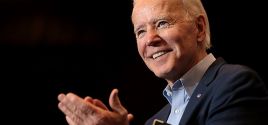Tea Party Candidate Now Comes In Last On Three-Way Generic BallotRasmussen ReportsFeb. 10, 2010 |
Popular 
U.S. 'Shoots Down Own Jet' Over Red Sea in 'Friendly Fire Incident'

Biden Commutes Sentences of 37 of 40 Federal Death Row Inmates - Excludes Robert Bowers, Dylann Roof

Putin Accuses 'Ethnic Jews' of Tearing Russian Orthodox Church Apart

Ohio Senate Passes Bill Aimed at Outlawing Criticism of Israel, Criminalizing Gospel

Saudi National Rams Car Into Germans at Christmas Market in Suspected Terrorist Attack [UPDATED 2X]
 The image of the tea party patriots went from being average citizens standing up to their governments at their town hall meetings to Sarah Palin reading off her hand and being a fake, patronizing, kindergartner teacher, clown. The masses really need to get wise to these backstabbing traitors and stop being endlessly suckered.For Republicans, the good news is that the Tea Party challenge is a little less scary for now. The bad news is that Democrats are still ahead in a three-way Generic Ballot test. A new Rasmussen Reports national telephone survey of likely voters finds that in a three-way congressional contest with a Tea Party candidate on the ballot, the Democrat earns 36% support. The GOP candidate comes in second with 25% of the vote, while the Tea Party candidate picks up 17%. Twenty-three percent (23%) are undecided. In early December, the Tea Party candidate came in second with 23% of the vote, while the Republican finished in third with 18%. The Democratic candidate attracted 36% of the vote in that contest, too. Unchanged between the two surveys is the 41% of voters who have a favorable opinion of the Tea Party movement. But now 28% view the movement unfavorably, up six points from December. Thirty-one percent (31%) are not sure what they think of the movement. The survey was taken Sunday and Monday night following the Tea Party movement's first national convention in Nashville. Former Alaska Governor and GOP vice presidential candidate Sarah Palin was the keynote speaker and told the group, "This is the future of our country. The Tea Party movement is the future of politics." Shifts in voting by Republicans and voters not affiliated with either party are key to the Tea Party's new third-place showing. In December, 39% of GOP voters went for their party's candidate, but 33% opted for the Tea Party. Now, 48% of Republicans are sticking with the GOP, and just 23% favor the Tea Party candidate. Among unaffiliateds, 33% supported the Tea Party congressional candidate in December. Now, only 23% are voting that way. Interestingly, however, most of that shift seems to go into the undecided category rather than into support for the Republican. The Tea Party candidate continues to earn just single-digit support from Democratic voters. Fifty-one percent (51%) of Americans had a favorable view of the so-called "tea party" protests just after they were held on Tax Day, April 15, last year. It was those events around the country that gelled into the Tea Party movement, a protest largely against what are viewed as the big government policies of both major political parties. Sixty-five percent (65%) of Republicans now view the Tea Party movement favorably, down from 70% in December. A modest plurality (41%) of unaffiliated voters agrees, marking little change from the previous survey. One-in-five Democrats (19%) has a favorable opinion of the movement, up five points from December. The Political Class, on the other hand, continues to view the Tea Party movement very negatively. Sixty-six percent (66%) of the Political Class has an unfavorable opinion of the movement, while 52% of Mainstream voters regard it favorably. Even starker is the 92% support the Political Class gives the Democratic candidate in a three-way contest. Mainstream voters are a mixed bag: 30% support the Republican, while 21% prefer the Democrat and 24% like the Tea Party candidate. Twenty-five percent (25%) of Mainstream voters are undecided. Republican candidates lead Democrats by eight points in the latest edition of the two-way Generic Congressional Ballot. Forty-four percent (44%) would vote for their district's Republican congressional candidate while 36% would opt for his or her Democratic opponent. Republicans have held the lead on the ballot for several months now. Sixty-three percent (63%) of voters nationwide say they have been following at least somewhat closely recent news stories about the groups known as the Tea Party movement. That figure includes 33% who say they are following very closely. Republicans and unaffiliated voters are following news about the Tea Party movement much more closely than Democrats. Seventy-five percent (75%) of voters now say they are at least somewhat angry at the government's current policies, up four points from late November and up nine points since September. The overall figures include 45% who are Very Angry, also a nine-point increase since September. Part of the frustration is likely due to the belief of 60% of voters that neither Republican political leaders nor Democratic political leaders have a good understanding of what is needed today. While most Democratic voters are comfortable with their representatives in Washington, 75% of Republicans voters believe Republicans in Congress have lost touch with GOP voters throughout the nation over the past several years. A Hotline/National Journal survey of GOP insiders in early January found that most are sour on Palin. But a Rasmussen Reports survey in mid-November found that 59% of Republicans say Palin shares the values of most GOP voters throughout the nation. |



